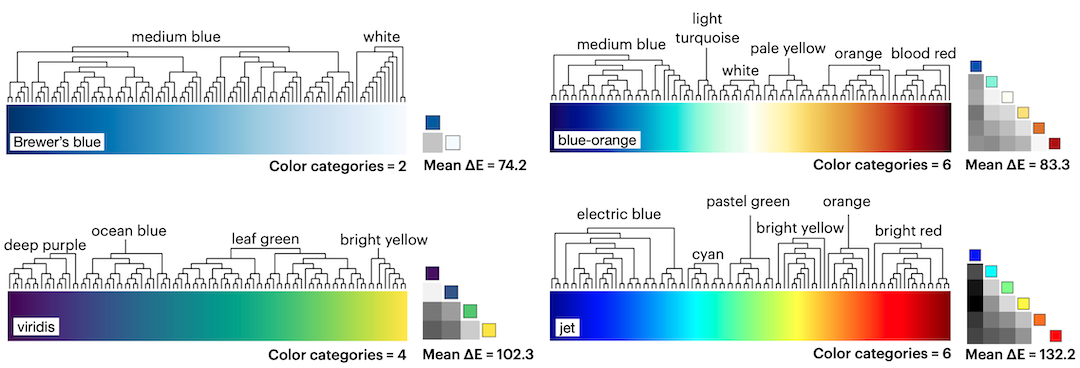Rainbow Colormaps: What are they good and bad for?
Khairi Reda
DOI: 10.1109/TVCG.2022.3214771
Room: 105
2023-10-25T22:00:00ZGMT-0600Change your timezone on the schedule page
2023-10-25T22:00:00Z

Fast forward
Full Video
Keywords
Quantitative color encoding;rainbow colormaps;scalar fields;perception
Abstract
Guidelines for color use in quantitative visualizations have strongly discouraged the use of rainbow colormaps, arguing instead for smooth designs that do not induce visual discontinuities or implicit color categories. However, the empirical evidence behind this argument has been mixed and, at times, even contradictory. In practice, rainbow colormaps are widely used, raising questions about the true utility or dangers of such designs. We study how color categorization impacts the interpretation of scalar fields. We first introduce an approach to detect latent categories in colormaps. We hypothesize that the appearance of color categories in scalar visualizations can be beneficial in that they enhance the perception of certain features, although at the cost of rendering other features less noticeable. In three crowdsourced experiments, we show that observers are more likely to discriminate global, distributional features when viewing colorful scales that induce categorization (e.g., rainbow or diverging schemes). Conversely, when seeing the same data through a less colorful representation, observers are more likely to report localized features defined by small variations in the data. Participants showed awareness of these different affordances, and exhibited bias for exploiting the more discriminating colormap, given a particular feature type. Our results demonstrate costs and benefits for rainbows (and similarly colorful schemes), suggesting that their complementary utility for analyzing scalar data should not be dismissed. In addition to explaining potentially valid uses of rainbow, our study provides actionable guidelines, including on when such designs can be more harmful than useful. Data and materials are available at https://osf.io/xjhtf